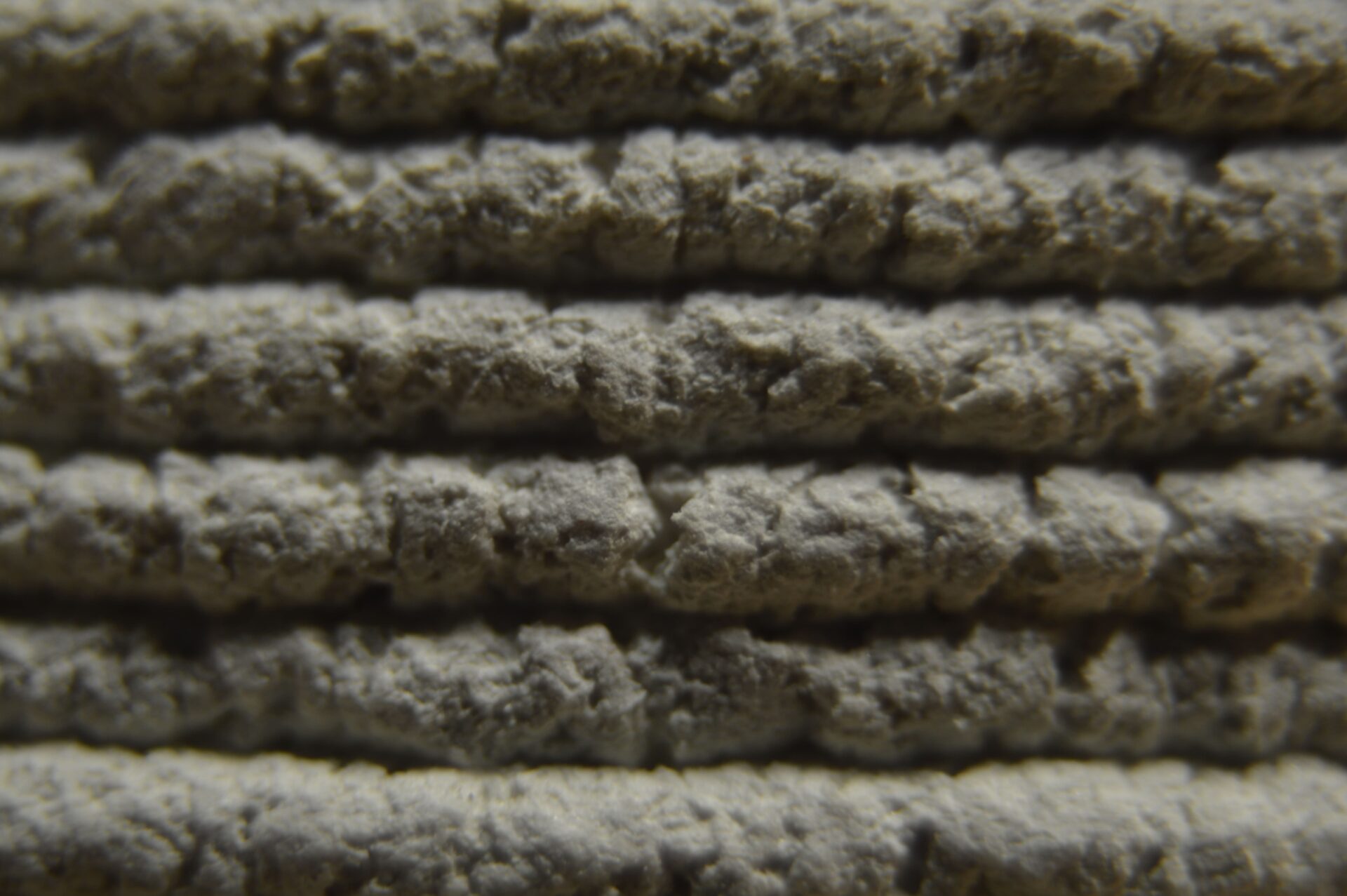Dodola
Company Name:
Pjorkkala
Category:
concept design
Project description:
The product Dodola is an installation of intricately shaped filtration modules which purifies water of contaminants as small as bacteria, thereby leaving behind only the desired constituents such as minerals.
It’s made of clay, mixed with organic material and fired in a way which increases its porosity by a manyfold. Stemming from material experimentation, the process of form exploration began with the help of generative design and 3D clay printing technology.
The goal was to generate forms that would act as scaffolding for the water, enable and improve water permeability and enable water movement and its upwards directed flow.
To take advantage of hydraulic pressure under the surface, the underwater objects were designed to enable water absorption through the entire surface of the structure.
To increase the permeability of water, the filter was designed by incorporation of the gyroid minimal surface, which can also be observed in beetle shells and the paths of a butterfly’s wings mid-flight.
The structure used in the water filter increases the area of permeability by a manyfold, which consequently accelerates the water filtration. Furthermore, using this structure makes the objects statically reinforced.
The flow of the water is used to turn the filters, which then transfers the water from a lower to a higher plane through an Archimedes screw. By using the flow of water to power the rotation of the filters, the device can be installed even in remote areas where there are no power connections.
What makes it smart / innovative?:
Dodola is a product where design had the most important role, it was used to offer an alternative to already existing ceramic water filters which aren’t either sustainable or viable in terms of effectiveness.
It was also used to develop a product which would be long lasting, efficient and would promote decentralized and radically sustainable solutions.
All materials used are sustainable, natural and locally found. The clay can be collected in nearby forests and the saw dust is obtained from local woodworkers.
The 3D clay printing technology doesn’t create any material waste during the production. The final product needs very little maintenance and no additional parts.
Furthermore it is autonomous and doesn’t need electricity to function. All of the software used for production of the Dodola (Blender, Cura) are available to the public.
Principles used for designing Dodola were all taken from already widely known knowledge and practices and were integrated into the final solution.
The whole process and research findings are shared with the public at the exhibition and online platforms. But most importantly Dodola is a solution which could be shared to various countries by being open-source and could be produced locally.
Why is it relevant for the final user?:
Dodolas are designed for areas that the public water supply doesn’t reach effectively.
Since they are susceptible to political, economical and environmental disturbances, people can’t always rely on centralized solutions when it comes down to basic needs, therefore alternatives to these systems are crucial for resilience.
This communally managed and owned system we designed can empower communities and make them more resilient and self-sufficient.
The system is tailored to people’s needs and habits instead of relying on people changing their way of life to enable the design.
At the same time the purpose of the project isn’t only to offer a sustainable water filter but also to encourage users and all other stakeholders to be aware of the problems connected to water, not just in areas where this is already well known but also in areas which are contaminated contrary to belief in purity of the water that is available there.
Link to the project:
Pdf presentation:










